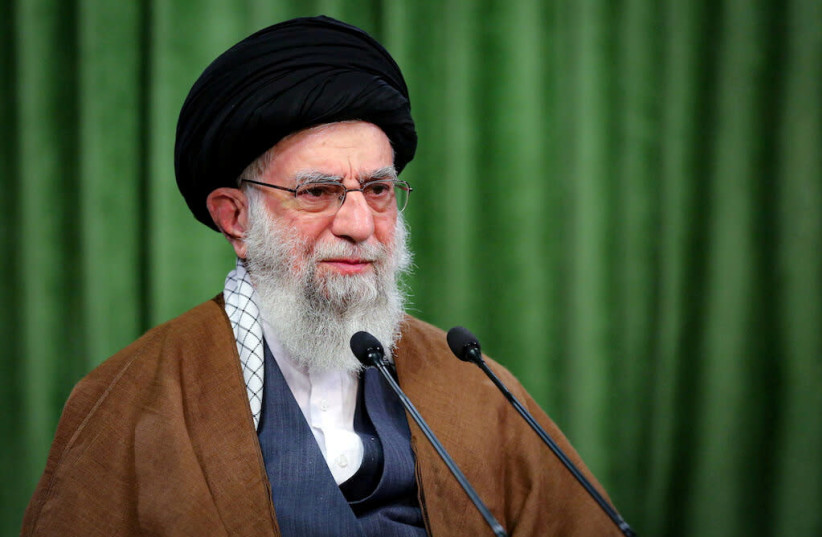Iranian Supreme Leader Ali Khamenei believes that the Western powers are in decline, slamming the US over the weekend as Iran faces unprecedented protests at home.
Fearful that the ongoing protests represent a real challenge to the regime’s power, it has put forward a narrative that views the Western world order as one that is in decline.
If the Iranian regime can remain in power, it believes that it will get more support from China, Russia and other countries.
“Today, Western powers are gradually losing their political, scientific, cultural and economic dominance, and these will be transferred from the West to Asia in the new world order,” Khamenei wrote on his Twitter account on Sunday. “Asia will become the center of science and economy, and also the political and military power of the world.”
The points he is making are important. During the Iranian Revolution, the religious theocrats who led it claimed that they were offering the world an alternative between the US and Soviet blocs. Today, the regime appears to know that its alternative isn’t going to reshape the world so it has chosen to work with China and Russia in hopes that the West is in decline.
The Iranian regime is now proposing a “new world order,” to contrast with the one that George H.W. Bush spoke about in 1991. This one will not be a rules-based international order led by the United States; instead, it will be an authoritarian world order, which will be led by Asian states. These are the hopes out of Tehran.

Iran hopes that it can continue to undermine countries in the Middle East – what it calls the “resistance” – weakening the state structures of Iraq, Yemen, Syria and Lebanon and supplanting those countries with Iranian-backed proxies. Tehran hopes that the West will also become more isolated.
This is a big gamble for the Islamic Republic because if its friends in Moscow and Beijing are not as strong as Iran thinks they are, then it is in big trouble.
Would Iran be more aggressive in the future?
For instance, Tehran is now admitting it is providing Russia with drones. This shows it does not fear Western sanctions like it used to – and may soon walk away entirely from the 2015 nuclear deal. This means Iran’s belief that the world order is shifting is important.
This could lead Iran to confront Saudi Arabia, Israel and the US in more direct ways. Tehran is already threatening Saudi Arabia and reports indicate the US is concerned and has sought to prevent Iran’s attacks on the kingdom and on Iraq.
A report at The Jerusalem Post noted that “the US Central Command recently launched warplanes toward Iran from their base in the Persian Gulf after receiving reports that the country was preparing to attack Saudi Arabia,” according to The Washington Post.
Iran’s open claims about how it sees the world order shifting dovetail with the threats to the Gulf and also its work with Russia, whose president, Vladimir Putin, also believes the world order is shifting. The invasion of Ukraine was linked to his belief that time is on Russia’s side; Iran may up its threats because of the same.
